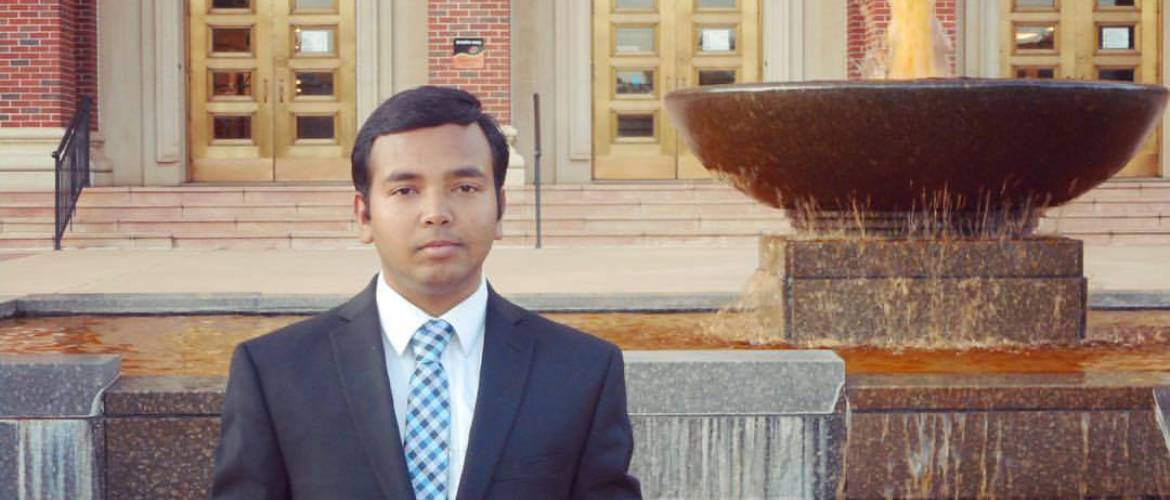
OSU doctoral student wins research fellowship at Argonne National Lab
Wednesday, December 20, 2017
Wasikul Islam, a graduate student in physics at Oklahoma State University, has been selected for a prized research fellowship at the Argonne National Laboratory (ANL) in Chicago, one of the largest science and energy laboratories in the U.S.
The laboratory usually hosts only two interns a year in its high energy physics division, and Islam, who is already familiar with the facility, will work there for one year thanks to the research fellowship.
“Last summer I worked at Argonne National Lab as a research aide in the HEP Center for Computational Excellence Summer Internship program. I am very happy to get this expanded opportunity to go back to Argonne and work there again for a much longer period of time,” Islam said. “I’m especially grateful to my adviser, Dr. Alexander Khanov, and other professors in our research group at OSU for their guidance and support.”
The fellowship, which includes a $20,000 stipend, is provided by the ATLAS research group at ANL to graduate students whose universities participate in the ATLAS experiment at the Large Hadron Collider at the CERN laboratory near Geneva, Switzerland. OSU’s Experimental High Energy Physics research group has been a member of the ATLAS collaboration since 2010. The ATLAS experiment involves the search for new discoveries based on the collision of high energy protons.
Islam will be participating in work toward upgrading the pixel tracker, which is the innermost part of the ATLAS detector for the High Luminosity Large Hadron Collider and essential for allowing scientists to better analyze the products of proton collisions and draw insights. The objective of the project is to ensure that the upgraded detector is able to cope with increased collider luminosity and make the rare processes the collider can generate observable in more detail. The upgraded version of the collider is expected to become operational in the year 2025.
